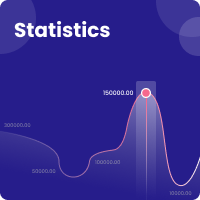Between classic Greece and modernity: displacement of the meaning "technology"
Abstract
This paper presents and analyses shifts in the signifier ‘technology’ over time. It focuses on two historical periods: Classical Greece and Modernity. After verifying general patterns present for twenty centuries, this work considers the changes in the meaning of the signifier ‘technology’ that are due to the emergence of capitalist production. Thus, modernity is described as a crucial moment when the new meanings of such signifier are formed, but also when contingency appears as an essential phenomenon that is verified in the various nuances of the term in different languages. Finally, the multiple meanings of this signifier do not constitute the impossibility of conceptual apprehension. Specifically, the meanings that were found range from an association with rhetoric and grammar started by Aristotle, including the discourse, description, and terminology of arts and techniques, to the point at which the signifier designates the object made by using technical, scientific, and industrial knowledge. We observe an increasing shift towards the latter meaning that is reinforced in the present.
References
Aristóteles. (1994). Retórica. (Q. Racionero, Trad.). Madrid: Editorial Gredos.
Aristóteles. (1995). Física. (G. R. de Echandía, Trad.). Barcelona: Gredos.Aristóteles. (1998). Ética nicomaquea. Ética Eudemia (4° Edición). Madrid: Gredos.
Aristóteles. (2004). Metafísica. (H. Zucchi, Trad.). Buenos Aires: Debolsillo.
Becerra, F. (2014). De la estructura del lenguaje en Jacques Lacan. Acheronta, 28(febrero). Recuperado de http://www.acheronta.org/acheronta28/becerra.htm
Callon, M. (1986). Some Elements of a Sociology of Translation Domestication of the Scallops and the Fishermen of St Brieux Bay. En J. Law (Ed.), Power, Action and Belief A New Sociology of Knowledge? (pp. 196-229). London: Routledge.
Callon, M., y Latour, B. (1981). Unscrewing the big leviathan: how actors macro-structure reality and how sociologists help them to do so. En K. Knorr-Cetina y A. V. Cicourel (Eds.), Advances in Social Theory and Methodology (pp. 277-303). London: Routledge and Kegan Paul.
Correa, L. (2015). Tecnología, sociedad e Internet. Hacia una comprensión crítica de la tecnología, las tecnologías digitales y su cambio. Un estudio de las tensiones en torno a la mercantilización en Internet (Tesis doctoral). Universidad Nacional de Quilmes, Bernal, Buenos Aires.
Correa, L. (2016). Tecnología, artificialidad y hábitat: Teoría Crítica de la Tecnología y su aplicabilidad al estudio del hábitat en tanto objeto tecnológico. Revista Horizontes Sociológicos, 4(8), 123-146.
de Terreros y Pando, E. (1788). Diccionario castellano con las voces de ciencias y artes y sus correspondientes en las tres lenguas francesa, latina é italiana: P-Z (Vol. II). Madrid: Imprenta de la viudad de Ibarra, Hijos y Compañía. Recuperado de http://books.google.com.ar/books?id=NANIWi3BGUwC&source=gbs_book_other_versions
Descartes, R. (1987). Los principios de la filosofía. México DF: Universidad Nacional Autónoma de México.
Drucker, P. F. (1959). Work and Tools. Technology and Culture, 1(1), 28-37.
Dussel, E. (1984). Estudio preliminar. Lugar del cuaderno tecnológico-histórico en la totalidad de la obra de Marx. En K. Marx, Cuaderno tecnológico-histórico (Extractos de la lectura B 56, Londres 1851) (pp. 9-80). Puebla: Ediciones Especiales de la Universidad Autónoma de Puebla.
Gaspar y Roig (Ed.). (1855). Diccionario enciclopédico de la lengua española, con todas las voces, frases, refranes y locuciones usadas en España y las Américas Españolas (Vol. II). Madrid: Imprenta y Librería de Gaspar y Roig.
Heidegger, M. (1927). Die Grundprobleme der Phänomenologie. En Gesamtausgabe (Vol. 24). Frankfurt am Main: Vittorio Klostermann.
Heidegger, M. (1997). La pregunta por la técnica. En J. Acevedo (Ed.), Filosofía, ciencia y técnica (pp. 111-148). Santiago de Chile: Editorial Universitaria.
Heller, H. (2002). Labour, Science and Technology in France, 1500-1620. Cambridge: Cambridge University Press.
Jaeger, W. (1983). Paideia. México DF: Fondo de Cultura Económica.
Kranzberg, M. (1959). At the Start. Technology and Culture, 1(1), 1-10.
Lacan, J. (2005). Escritos 2. México DF - Buenos Aires: Siglo XXI.
Lara, A. (2008). Petrus Ramus y el ocaso de la retórica cívica. Utopía y Praxis Latinoamericana, 13(43), 11-31.
Latour, B. (1991). Technology is society made durable. A Sociology of Monsters. Essays on Power, Technology and Domination, Sociological Review Monograph, (38), 103-132.
Latour, B. (2008). Reensamblar lo social: una introducción a la teoría del actor-red. Buenos Aires: Manantial.
Law, J. (2003). Ordering and Obduracy. Centre for Science Studies Lancaster University. Recuperado de http://www.lancaster.ac.uk/fass/resources/sociology-online-papers/papers/law-ordering-and-obduracy.pdf
Law, J. (2009). Actor Network Theory and Material Semiotics. En B. S. Turner (Ed.), The New Blackwell Companion to Social Theory. Chichester, West Sussex / Malden (MA): Wiley-Blackwell.
Law, J. (2012). Technology and heterogeneous engineering: the case of Portuguese expansion. The social construction of technological systems: New directions in the sociology and history of technology, 1, 105-127.
Law, J., y Hassard, J. (Eds.). (1999). Actor Network Theory and After. Oxford: Blackwell.
Mitcham, C. (1994). Thinking Through Technology: The Path Between Engineering and Philosophy. Chicago / London: University of Chicago Press.
Multhauf, R. P. (1959). The Scientist and the «Improver» of Technology. Technology and Culture, 1(1), 38-47. https://doi.org/10.2307/3100786
Páez Casadiegos, Y. (2014). Phýsis, téchne, episteme: Una aproximación hermenéutica. Eidos, (20), 38-52.
Pinch, T. J. (2008). Technology and institutions: living in a material world. Theory and Society, 37(5), 461-483. https://doi.org/10.1007/s11186-008-9069-x
Plato. (1864). Gorgias. (E. M. Cope, Trad.). Cambridge & London: Deighton, Bell, and Co & Bell and Daldy.
Plato. (1991). The republic of Plato. (A. D. Bloom, Trad.) (2nd ed.). New York: Basic Books.
Platón. (1871). Filebo. En P. de Azcárate (Ed.), Obras completas de Platón (Vol. Tomo III, pp. 19-141). Madrid: Medina y Navarro Editores.
Platón. (2004). La República. Buenos Aires: Bureau Editor.
Schatzberg, E. (2006). Technik comes to America: Changing meanings of technology before 1930. Technology and Culture, 47(3), 486–512.
Skrbina, D. (2014). The Metaphysics of Technology. New York & London: Routledge.
Downloads
Altmetric










